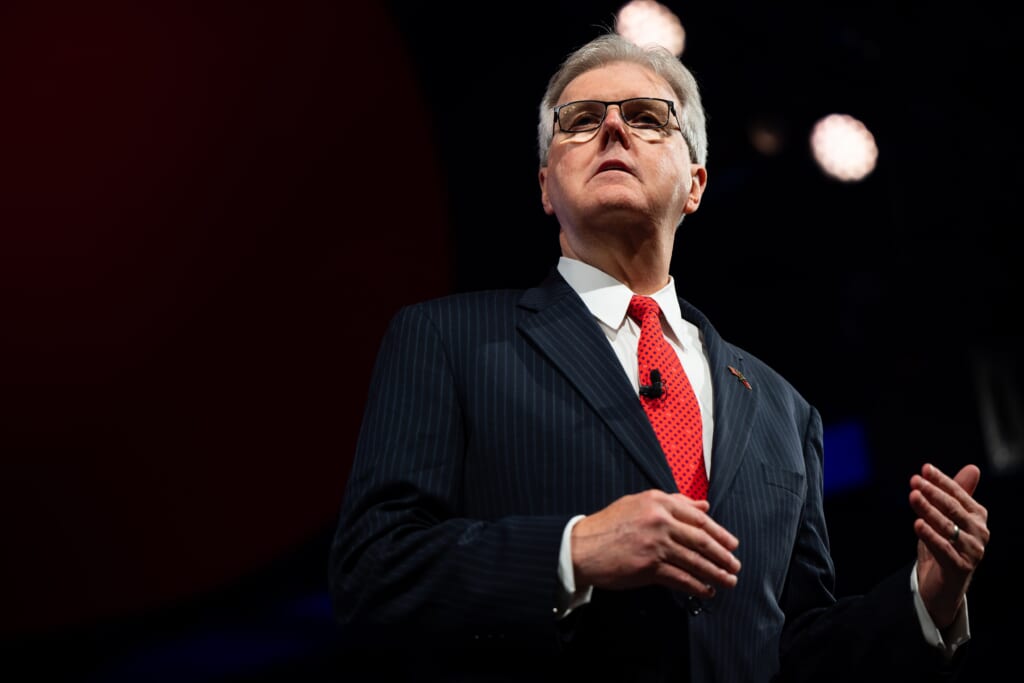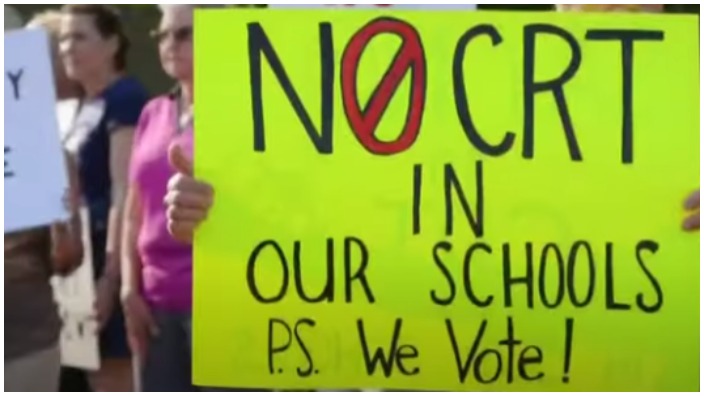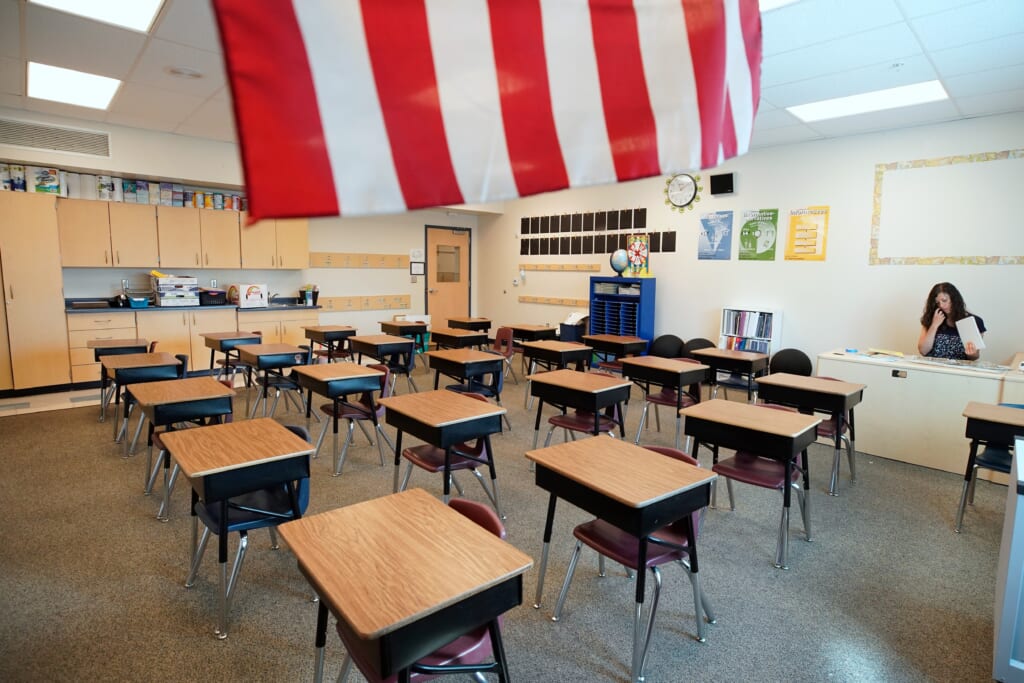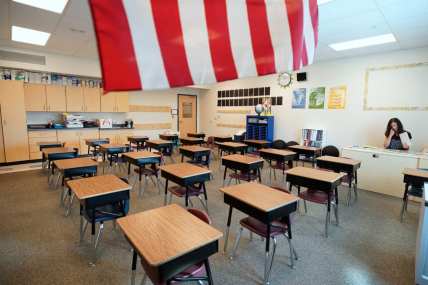Educators decry Texas official’s pledge to ban CRT in public universities as attack on academic freedom and equity
“Me sharing the history, legacy and tradition of what my ancestors have experienced is being viewed as poisoning the minds of individuals,” said Prairie View A&M University’s Fred A. Bonner II
The coordinated Republican attack on teaching critical race theory in schools hit higher education on Tuesday when Texas Lt. Gov. Dan Patrick pledged to ban CRT in public universities.
“This is really the heart and the crux of what critical race theorists are trying to get at, are the ways that racism is literally embedded in the fabric of our societies,” said Felicia Harris, who helps lead University of Houston-Downtown’s Center for Critical Race Studies. “So you see that when we make a little nudge of progress, people who have power then decide, ‘What are the ways we can now wield and weaponize whatever power we’re still grasping onto in order to gain back some of what we’ve just lost.’”
Patrick, who wrote on Twitter, “I will not stand by and let looney Marxist UT professors poison the minds of young students with Critical Race Theory,” made the announcement in response to a resolution by University of Texas’ Faculty Council defending educator rights under academic freedom to teach about critical race theory along with race and gender justice.

“We banned it in publicly funded K-12 and we will ban it in publicly funded higher ed,” Patrick tweeted.
While critical race theory is an academic framework centered on systemic racism, Republicans have increasingly used the term to ban conversations about race in K-12 schools. Republicans have introduced more than 100 bills attempting to ban conversations on race in schools in statehouses across the nation.
“That really is sobering and disquieting in the sense that by me sharing the history, legacy and tradition of what I have experienced, what my ancestors have experienced, by me even wanting to share that is being viewed as poisoning the minds of individuals,” said Fred A. Bonner II, chief scientist at Prairie View A&M University’s Minority Achievement, Creativity and High-Ability Center.
There is a precedent for political debate on teaching subjects such as climate change and sex education in K-12 schools, but there has not been a comparable attack on what the Brookings Institution’s Michael Hansen called “political hot potatoes” in higher education in recent memory.
“Critical race theory is not a movement, but they’re using critical race theory to come after Black Lives Matter,” Harris said.
The Texas lieutenant governor arguably has more power than the governor, partly due to the lieutenant governor’s ability to control the flow of legislation in the Statehouse.

Hansen said a ban on critical race theory will impact most if not all of the social sciences — even the ones that might not immediately come to mind, such as economics or psychology — because many of them include systemic racism in their teachings.
However, University of Texas pharmacy professor Andrea Gore, who wrote the University of Texas’ Faculty Council resolution, worries about the greater implications for academic freedom in all fields of study.
“I am a neuroscientist and even my academic freedom to conduct research and teaching in my field could be affected,” Gore wrote in an email to Medill News Service. “I study effects of environmental chemical contaminants on the development. What happens if the chemical industry begins lobbying to halt research into adverse effects of chemicals?”
Eliminating critical race theory in higher education would violate the academic freedom of students too, said Dana Thompson Dorsey, who has taught critical race theory at multiple universities since 2013.
“Students are supposed to have the choice to learn from different professors and also about different perspectives so they can make informed decisions,” said Dorsey, adding that at least one student in every critical race theory class she has taught has told her that the class changed their life.

If a bill banning critical race theory passed, however, academics said it won’t stop them from doing their jobs.
“As an employee of the state, I’m never going to say I’m going to intentionally break a law — but I do think academics can outsmart the law in ways that politicians may not be able to anticipate,” Harris said.
Harris’ colleague, Director of University of Houston-Downtown’s Center for Critical Race Studies Vida Robertson, called trying to ban critical race theory in higher education a “fool’s errand.”
“Our jobs are to create new knowledge, and therefore implicit in that is academic freedom — to challenge the status quo whether it is in scientific fields or in the humanities. So in essence you would have to re-imagine the university,” Robertson said.
Bonner, who teaches at an HBCU, said race is essential to the identities of people of color, especially Black people — and legislators would never be able to introduce a bill that could ban those conversations at an HBCU.
He quoted lyrics from a song called “Stealing My Peace of Mind:” “The thieves are at it again, stealing my peace of mind, but they won’t win because my soul they’ll never find.”
“The thieves are at it again, trying to steal our peace of mind, trying to take this thing that makes us us: our agency,” Bonner said.

Grace Deng is a freelance writer and education reporter for Medill News Service. They study journalism, legal studies and Asian American Studies at Northwestern University. The Seattle native has also been a public affairs intern for the USA TODAY Ohio Politics Bureau, where they covered the Ohio Statehouse for the Columbus Dispatch and 20 other newspapers in the state. Follow them on Twitter @gracesdeng.
TheGrio is now on your TV via Apple TV, Amazon Fire, Roku, and Android TV. Also, please download theGrio mobile apps today!


